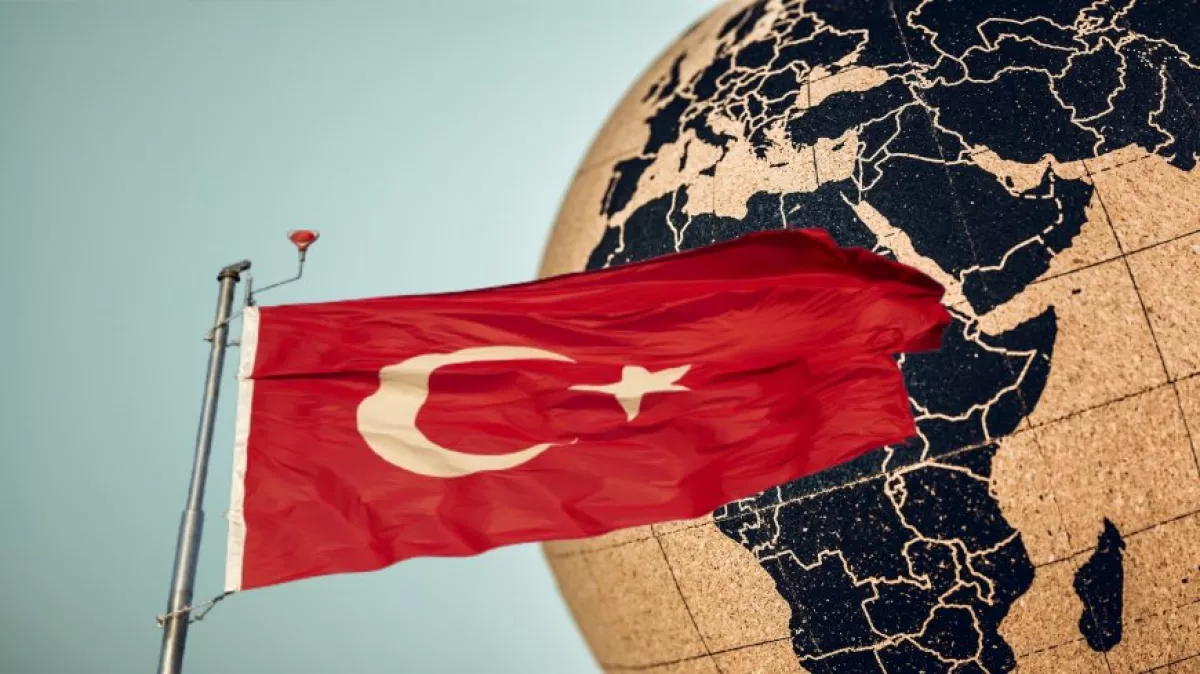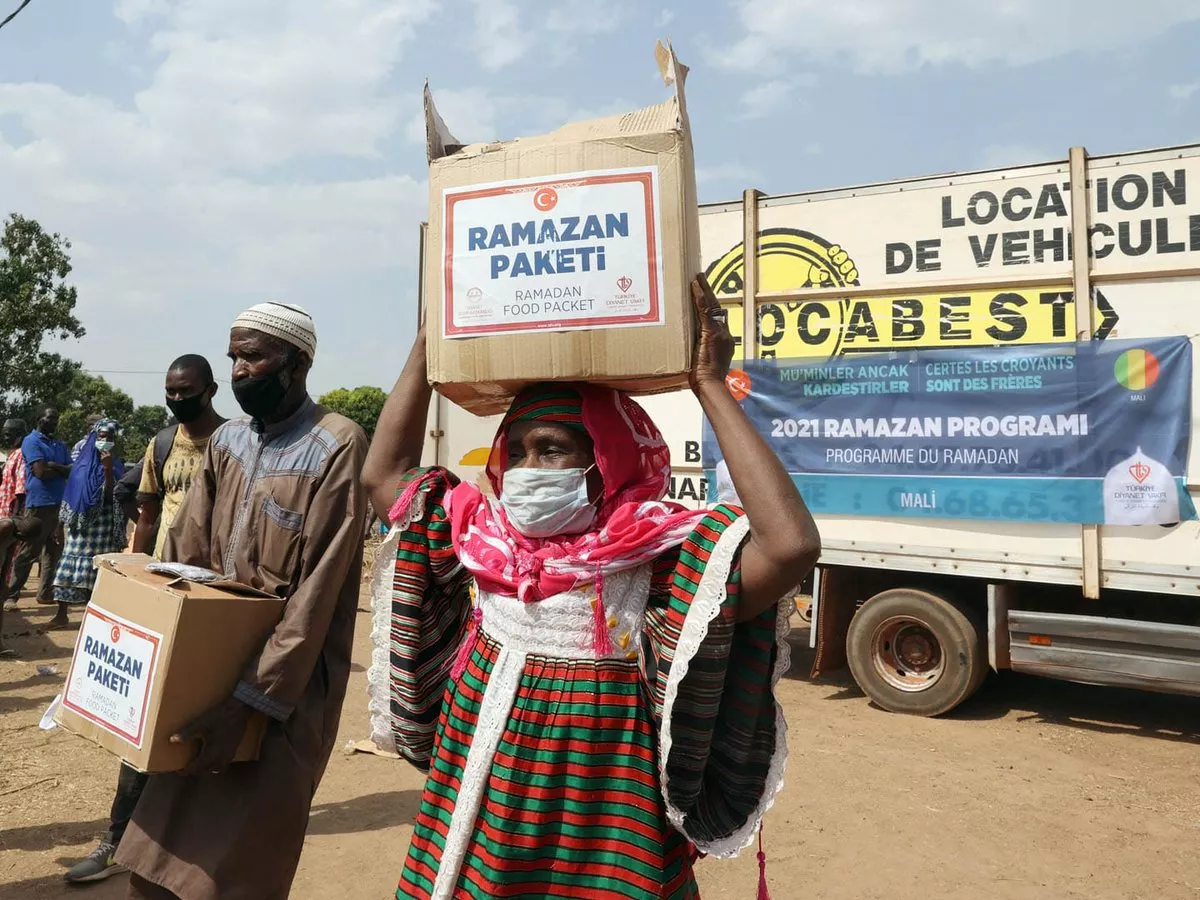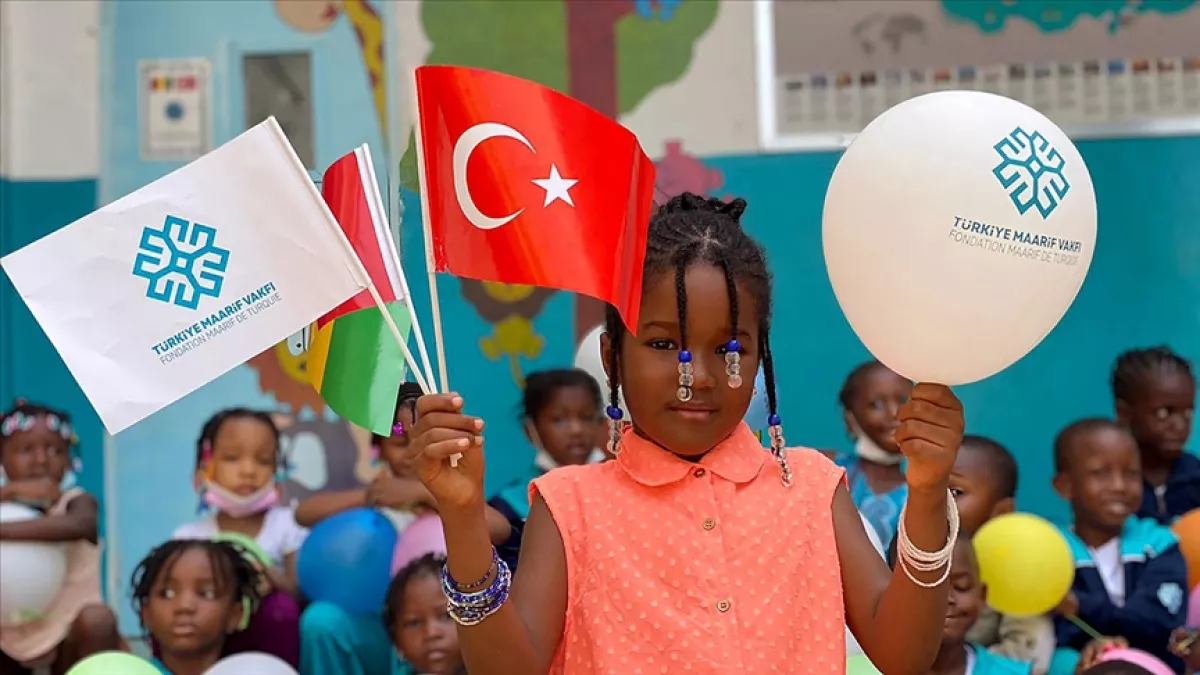Türkiye's growing presence in Africa A partnership in a new format
The history of Türkiye's presence in Africa dates back to the height of the Ottoman Empire, when, after the defeat of the Egyptian Mamluks, Istanbul extended its influence from Egypt to Morocco. However, in the early 20th century, as a result of the Italo-Turkish War and World War I, the Ottomans lost all their African territories.
In 1926, the young Turkish Republic opened an embassy in Addis Ababa, but for many decades, Ankara's role in African affairs remained insignificant. Several factors contributed to this: the relative weakness of the young state and the continued dominance of colonial powers on the continent. Then came the Cold War period, when African countries became the arena for the rivalry between the USSR and the USA, both of which did not welcome the involvement of third parties in the "Great Game."
By 1998, Türkiye had no more than twelve embassies in Africa. Despite loud declarations and the introduction of "The Action Plan for Opening to Africa," the coalition government of Bülent Ecevit at the time was limited to rhetoric about strengthening economic ties, with no concrete actions taken.
In 2003, Recep Tayyip Erdoğan became the Prime Minister of Türkiye and intensified the country’s efforts in Africa. In 2005, he made his first visit to the continent and declared it the "Year of Africa." Subsequently, the Turkish leader visited 33 African countries and established close personal ties with their leaders. A direct result of this policy was that, in 2008, the African Union invited Türkiye to become an "observer state and strategic partner." The following year, African countries supported Ankara’s bid for a non-permanent seat on the UN Security Council.

Over the past 26 years, the number of Turkish diplomatic missions in Africa has increased fourfold, reaching forty-four, with plans to bring the number up to forty-nine. Considering that there are only 54 countries on the continent, this is an impressive achievement. In turn, the number of African embassies in Ankara has grown from ten in 2008 to thirty-eight in 2024. Turkish Airlines, the country's flagship carrier, operates flights to fifty-one cities across Africa.
In addition to diplomatic efforts, Türkiye places great importance on the activities of its humanitarian and non-governmental organizations. Today, Türkiye’s Red Crescent, Yunus Emre Cultural Centers, the Directorate of Religious Affairs, and other similar agencies operate in Africa. Turkish specialists in fields such as religion, medicine, and historical restoration also work on the continent. Periodically, Turkish disaster response experts from the "Disaster and Emergency Management Authority" (AFAD) are deployed to Africa.
Türkiye’s policy in Africa is further supported by the state broadcaster TRT Africa, which broadcasts in English, French, Swahili, and Hausa, covering the languages of Eastern and Western Africa.
Since 2019, Ankara has been actively working to restore its traditional sphere of influence in North Africa. The civil war in Libya opened significant opportunities for Türkiye in this direction. On November 27, 2019, the Libyan Government of National Accord (GNA) and the Turkish government signed the "Memorandum of Military Cooperation and Security." Military supplies from the Turkish port of Mersin enabled GNA forces to stabilize the front, which led to the signing of a ceasefire agreement between the warring parties in 2020 and the creation of a Government of National Unity. In turn, Türkiye established a presence in strategically important Libyan ports such as Misrata and Benghazi.
Even earlier, President Erdoğan established a strong partnership with Libya’s southern neighbour, Niger. Although diplomatic relations between the two countries had existed since 1967, Türkiye opened its embassy in Niger's capital, Niamey, only in 2012. The Turkish leader managed to establish solid personal ties with the country’s leaders, both those in power and those in opposition. For the people of Niger, Türkiye provided scholarships, vocational training courses, livestock, and agricultural equipment. Social and medical centres were opened, wells were dug, and food and clothing distribution points were organized.

Bilateral agreements between Türkiye and Niger have been signed in areas such as healthcare, trade, forestry, energy, and defence. In 2022, Niger purchased Bayraktar TB2 drones. After the military coup on July 26, 2023, which led to the cancellation of bilateral agreements between Niger and France as well as the United States, Ankara managed to maintain good relations with the new government of the African country. In July 2024, a Turkish delegation led by Foreign Minister Hakan Fidan visited Niamey, further strengthening bilateral ties. It is also noteworthy that Niger is one of the largest uranium producers in the world, and many experts believe that Türkiye's presence in the country is linked to interests related to Türkiye's nuclear program.
Another strategically important point for Türkiye’s presence in Africa is Somalia. In 2011, President Erdoğan ordered the opening of an embassy in the country’s capital, Mogadishu, and later made a state visit, thus ending years of international isolation for this impoverished and war-torn nation. Soon after, Turkish investments in Somalia reached one billion dollars, which were used to restore the country’s seaport and international airport, as well as to build hospitals, schools, and transportation infrastructure.

In February 2024, Türkiye and Somalia signed a military cooperation agreement. This led to the establishment of Türkiye’s largest overseas military base in the Horn of Africa. Some Somali soldiers are being sent to Türkiye for retraining, which includes not only military training but also immersion in the Turkish language and culture. Experts believe that Ankara hopes that, over time, some of these military personnel will take important positions in the Somali government and become conduits for Türkiye’s "soft power."
Finally, in May 2024, both countries signed an agreement for cooperation in the development of oil and gas reserves. To support this, Türkiye deployed its seismic research vessel, Oruç Reis, to the shores of Somalia.
In neighbouring Ethiopia, Türkiye’s interests have been advanced through military supplies. In 2021, the two countries signed an agreement for the supply of military equipment worth up to $51 million. Turkish drones helped Addis Ababa defeat rebels from the Tigray People’s Liberation Front. This marked the beginning of Türkiye’s "drone diplomacy"—countries such as Morocco, Libya, Togo, Mali, Djibouti, Burkina Faso, and others began eagerly purchasing Türkiye’s effective Bayraktar drones.
Thus, leveraging long-term investments and "soft power," Türkiye has secured several reliable allies in Africa—Niger, Somalia, Libya, and Ethiopia—while expanding its influence across the continent. Israeli experts note that a key factor in Türkiye’s success is its respectful approach to relations with its partners. While the US and Europe struggle to shed their arrogant and colonial attitudes, Türkiye respects the religious and cultural values of Africans, which is highly appreciated in Africa, a continent that has suffered for centuries under European policies.








